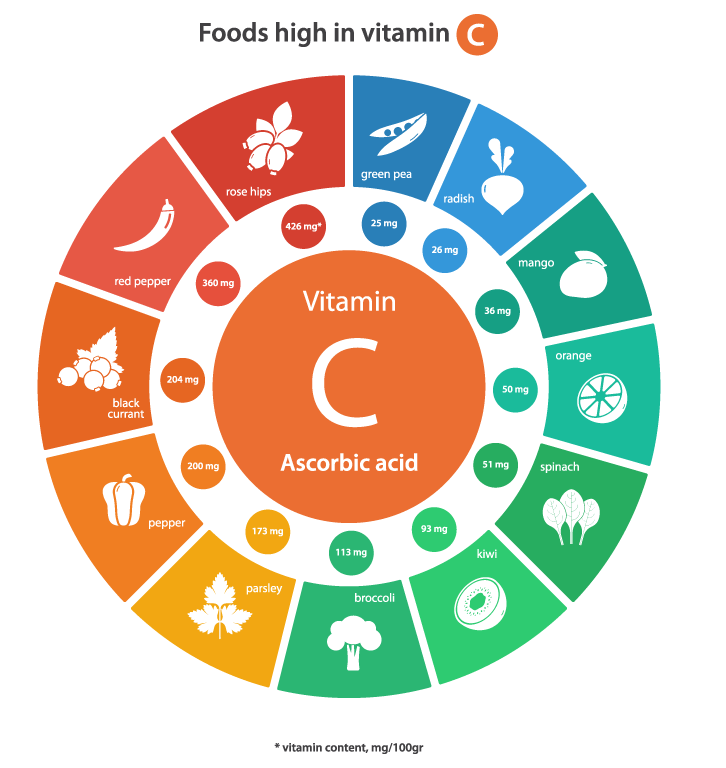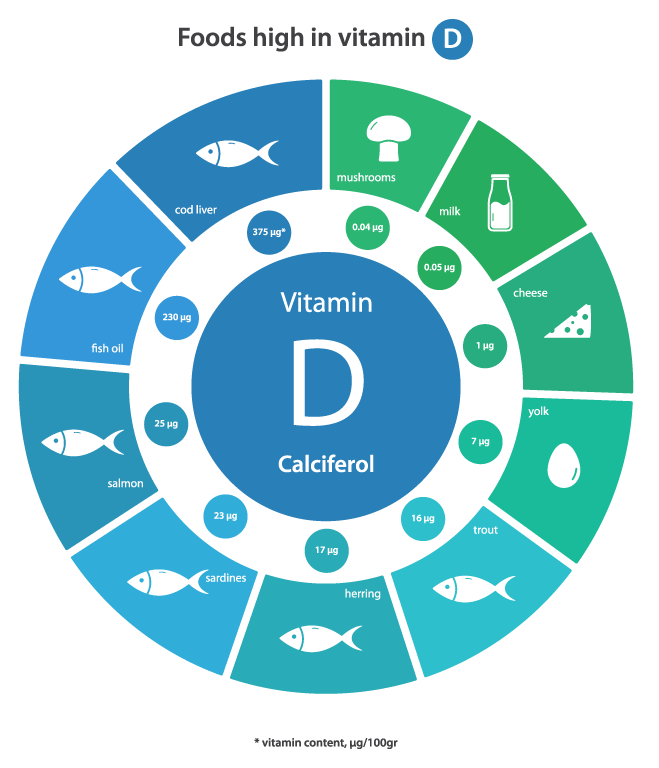Vitamin C2D: Co-operate to Dominate!
Jul 25, 2017
20951 Views
“When life gives you lemons and sunshine: just soak it all up!!!”
Our dynamically changing lifestyle has certainly taken an avid interest in health and nutrition. We no longer just eat to live, we want to eat right, eat good, eat healthy, and be well. People are taking note of the possible hereditary conditions their families suffer from and taking a conscience step towards ensuring its delayed onset or avoiding it completely. This can only be achieved through a good diet and exercise routine.
While one can monitor calories and food servings, another extremely important aspect of our diet are nutrients such as VITAMINS. There has been a notable increase in their deficiencies, according to WHO, “It is estimated that vitamin and mineral deficiencies affect at least one third of the world’s population. They are much more prevalent in developing countries but are not unknown in developed countries.” One of the major reasons, today for such deficiencies is the lack of awareness.
To be healthy – one must understand all aspects of diet and supplement the requirements accordingly. “Go low on carbs, adequate on vitamins and high on protein!” – the basic mantra for all individuals for a regular/standard routine who need more energy and wish to add on less fat.
With all that said, how does one realise they are deficient in certain vitamins? Do they have symptoms? Should you get regularly tested? Do Vitamin Deficiencies have a family history? Which are the most important vitamins?
Let’s get to know a bit more …
There are a large number of vitamins, but they are all equally important. One can understand that based on their function in the body. You can then choose between your eyesight, bone density, or immunity. We won’t judge you on that ?
One of the most common deficiencies seen today is that in Vitamin C and Vitamin D. Data collected from National Health and Nutrition Examination Survey (NHANES) in 2007-2010 confirms from a test pool of 16,000 Americans are below the Estimated Average Requirement (EAR) EAR : 94% percent of Americans deficient for vitamin D and 39 percent for vitamin C!
What do these vitamins help in? What are their benefits?
We need vitamin C (also known as ascorbic acid) for the growth and repair of tissues. It helps the body make collagen, a protein required to construct skin, cartilage, tendons, and ligaments. It also is crucial for healing wounds, and for repairing and maintaining bones and teeth. It is also one of many antioxidants that can protect against the damage caused by free radicals, as well as toxic chemicals and pollutants.
Vitamin D is required to maintain normal blood levels of calcium and phosphorus. Its main function is to help absorb calcium, which in turn is essential for the formation of a string skeletal structure.
Do these vitamins have any specific deficiencies?
A severe vitamin C deficiency is known in scurvy, a disease resulting from the breakdown of collagen. Scurvy affects bone and muscle strength and it cripples the immune system causing fatigue and lethargy. Other long-term health conditions due to the lack of this vitamin include blood pressure, certain cancers and heart conditions.
Rickets and osteomalacia are classic vitamin D deficiency diseases. Rickets is seen in children and causes a softening or weakening of the bones. Osteomalacia affects adults, which causes weak bones and muscles. Elderly/obese people with limited sun exposure are also more prone to vitamin D deficiency.
How to get these vitamins in our diet?
“Vitamin C has received a great deal of attention, and with good reason. Higher blood levels of vitamin C may be the ideal nutrition marker for overall health,” mentions a study by researcher Mark Moyad, MD, MPH, of the University of Michigan. “The more we study vitamin C, the better our understanding of how diverse it is in protecting our health, from cardiovascular, cancer, stroke, eye health [and] immunity to living longer.”
“But,” Moyad also adds, “the ideal dosage may be higher than the recommended dietary allowance.”
Vitamin C can easily be procured from fruits and vegetables! The image below provides the top vitamin C rich foods. Increasing your fruit and vegetable rich in this vitamin will also help you de-stress, rejuvenate your skin, and keep you safe from common colds and infections!

Similarly, Vitamin D can be taken in by exposure to sunlight and food items such as cod liver oil, meats, poultry and dairy products. An early morning walk can do wonders for both this vitamin take and your exercise routine!

Is there a family history link to these vitamins? Will I be deficient if my mother was…?
The genetic component is counted as one of the risk factors for Vitamin C deficiency. Vitamin C level in our body is dependent on SLC23A2 gene. Studies has shown that a variant of this gene, found in about 28% of the general population, causes poor absorption and accumulation of vitamin C in many tissues. A higher risk for vitamin C deficiency has also been noted in Individuals with the Hp2-2 genotype. Genetically speaking, carriers of SLC23A2 variant or Hp2-2 genotype must, therefore, be extra cautious of their vitamin C levels.
Researchers have identified four gene variants in vitamin D deficiency. These common gene variants include those involved with cholesterol, vitamin D metabolism and vitamin D transport. The higher possibility of having these gene variations increases the chances/risk of an individual of developing this deficiency.
Vitamin D deficiency is also hereditary in the way that if a mother has low vitamin D levels during pregnancy or when breastfeeding, then her baby (which is exclusively on breast milk) also acquires the risk vitamin D deficiency. As the child is dependent on the mother for their nutrition, mothers need to be even more cautious of their vitamin levels. Formula milk is also fortified with Vitamin D for the same reason.
How can one get tested for their Vitamin values or genetic risk for deficiency?
All clinical practitioners advise on blood tests to know the accurate levels of these vitamins before suggesting any supplements.
Genomepatri/Myfitgene is a simple, saliva based genetic test that can help you learn about the risk of vitamin deficiencies. Coupled with genetic and nutritional counseling – it helps understand your genetic risk, correlate it with your family history and current lifestyle and get recommendations accordingly.
C2D: Co-operate with your Vitamins to Dominate over their Deficiency!!!

